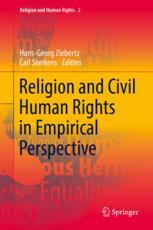

Most ebook files are in PDF format, so you can easily read them using various software such as Foxit Reader or directly on the Google Chrome browser.
Some ebook files are released by publishers in other formats such as .awz, .mobi, .epub, .fb2, etc. You may need to install specific software to read these formats on mobile/PC, such as Calibre.
Please read the tutorial at this link: https://ebookbell.com/faq
We offer FREE conversion to the popular formats you request; however, this may take some time. Therefore, right after payment, please email us, and we will try to provide the service as quickly as possible.
For some exceptional file formats or broken links (if any), please refrain from opening any disputes. Instead, email us first, and we will try to assist within a maximum of 6 hours.
EbookBell Team

4.8
24 reviewsThis volume offers an empirical perspective on the so-called first generation of human rights. It explores the legitimization of these human rights by individual people, both because of their religion and because of their vision of what constitutes human dignity. The book addresses such issues as the foundation of human rights, the necessity of a broader conversation about human rights, aspects of freedom of religion, and the role of religion in Belarus, Britain, Chile, Germany, Italy, Nigeria, Norway and Tanzania. Taking an international comparative perspective, the volume answers the question as to what extent adolescents in different countries support civil human rights and what influences their attitudes towards these rights.
As the diversity of the contributions in this volume shows, the relationship between religion and civil human rights is complex and multifaceted. Studying this complicated relationship calls for a variety of theoretical perspectives and rigorous empirical testing in different national contexts. This book’s empirical approach provides an important complementary perspective for legal, political and public debates.